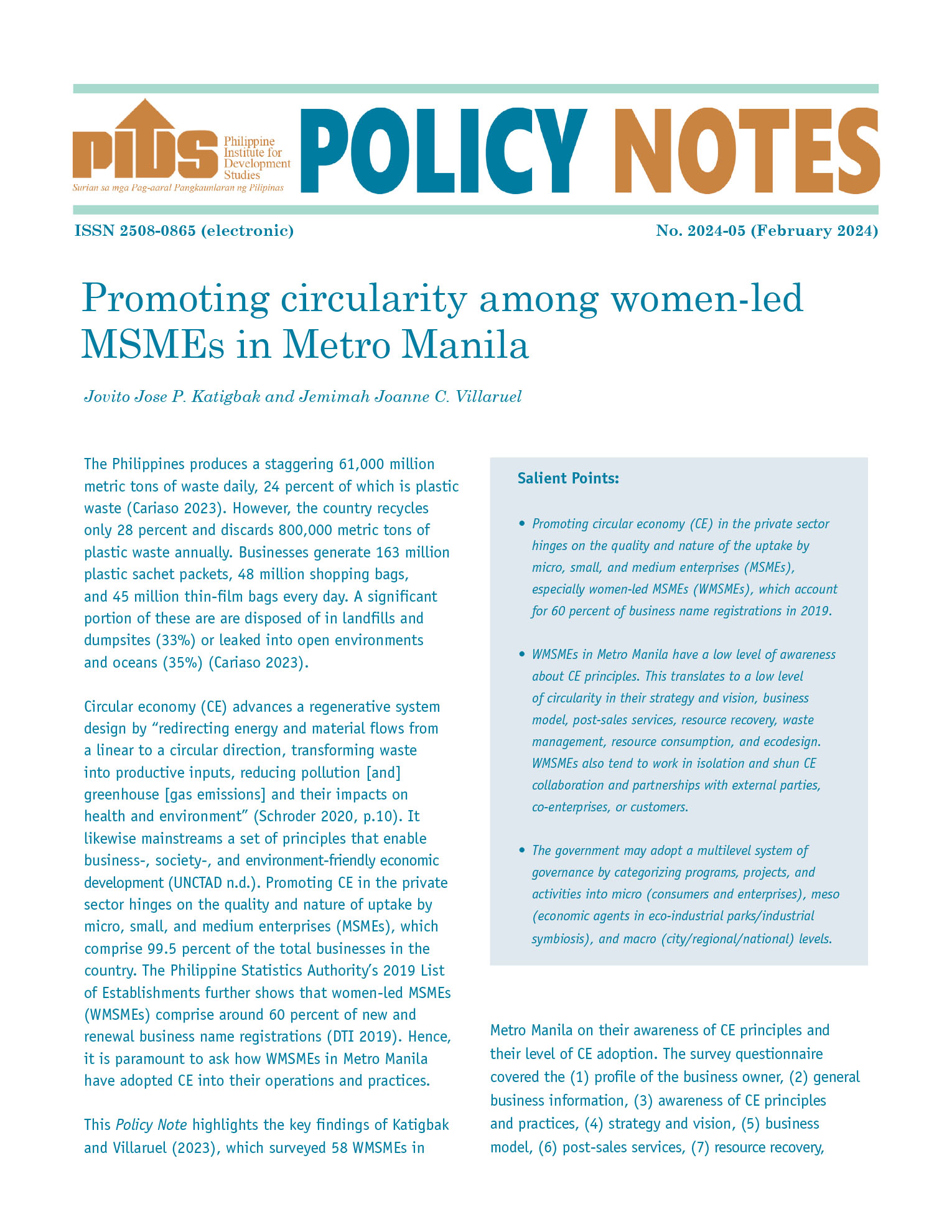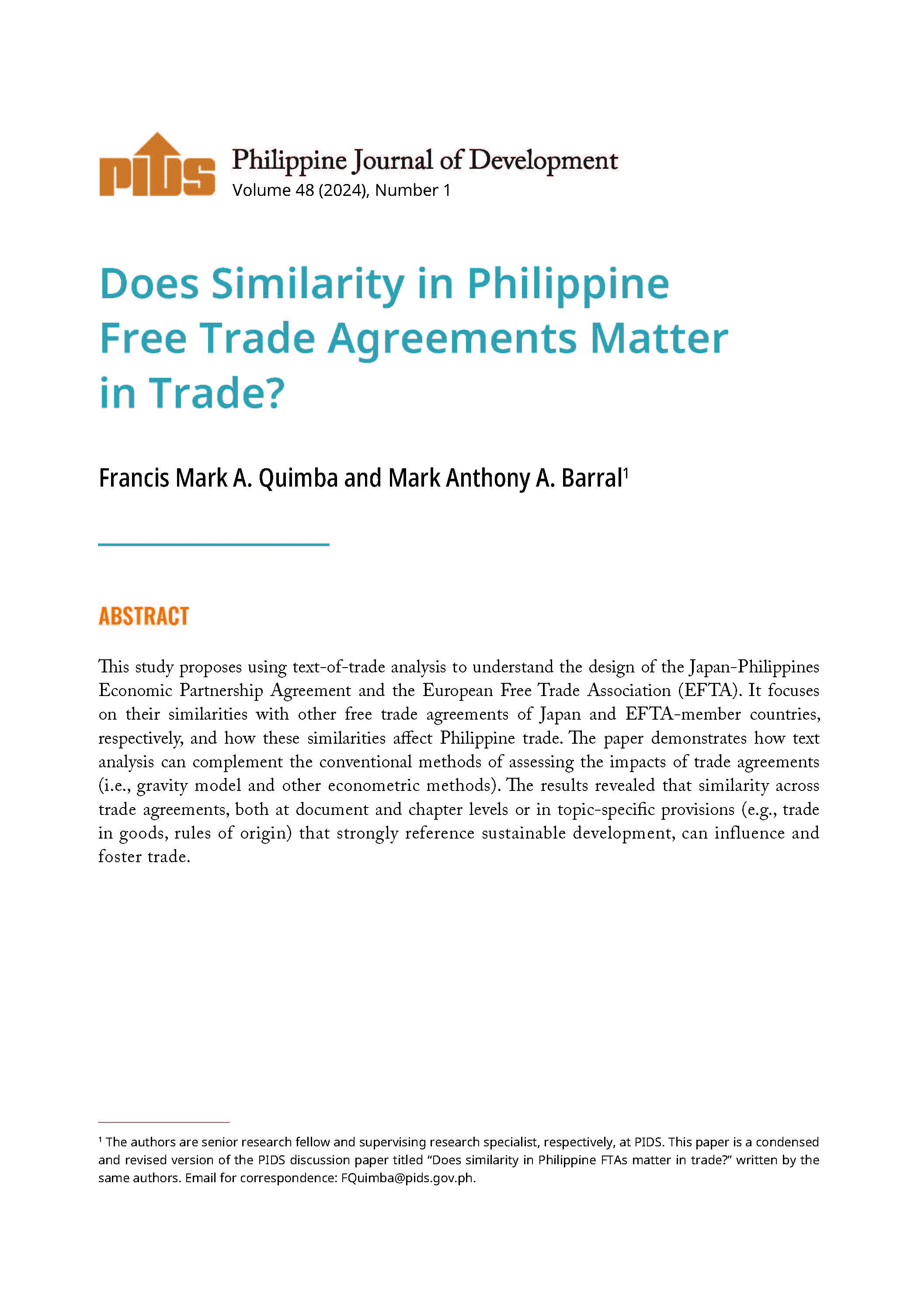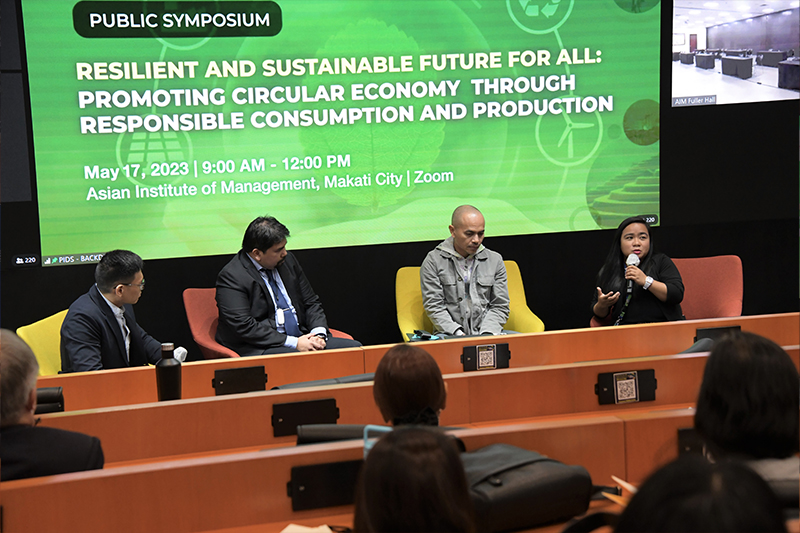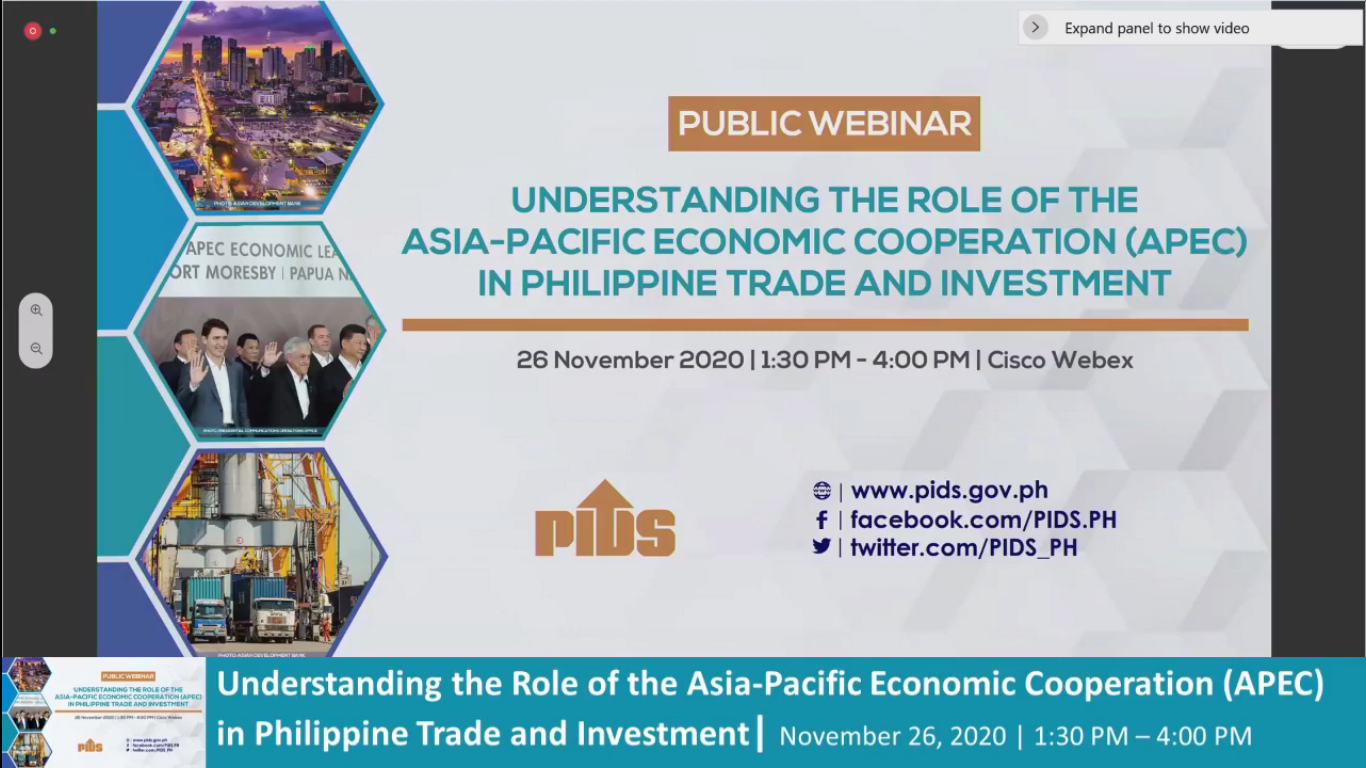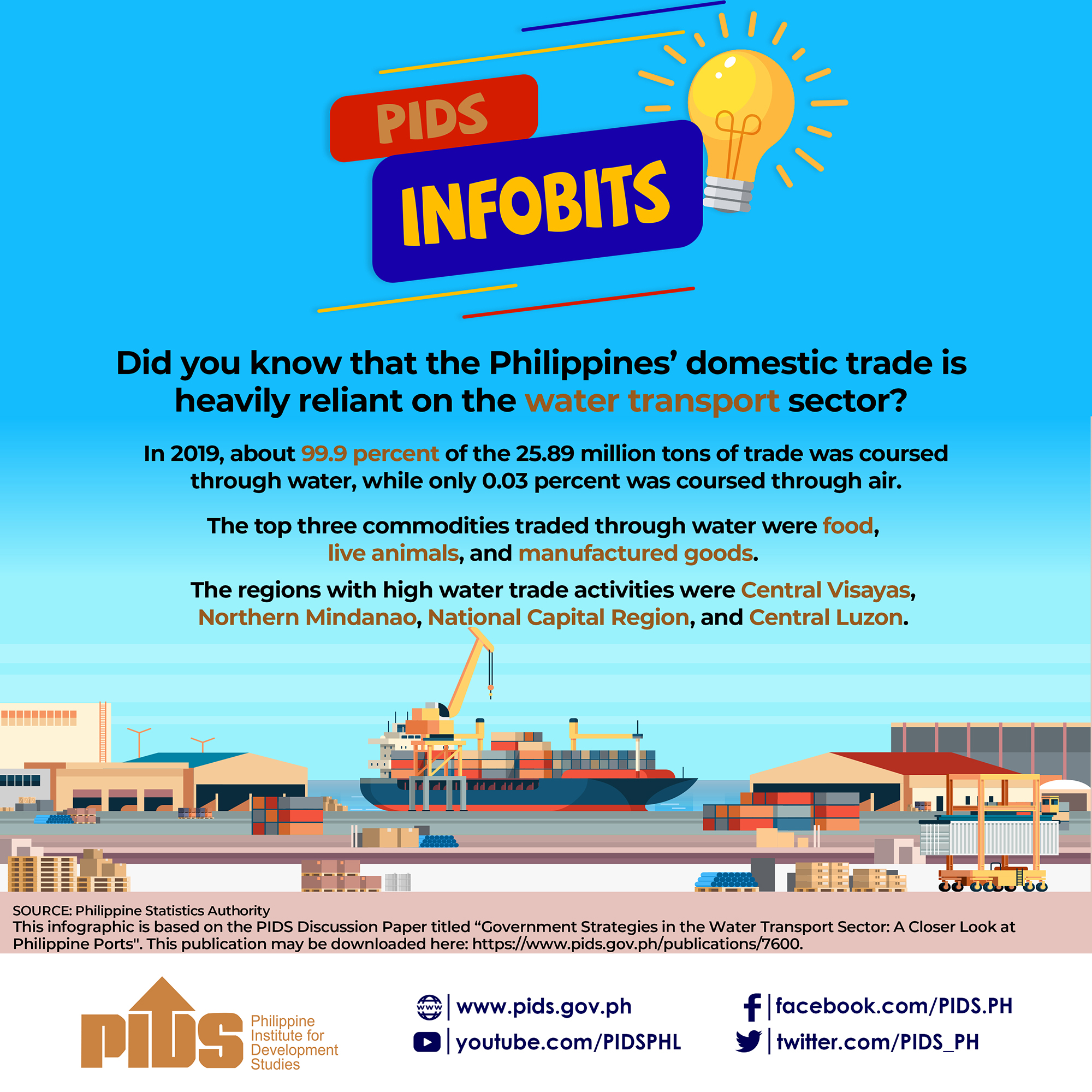THE country’s free trade agreements (FTAs) have increased labor productivity but not jobs, a study from the Philippine Institute for Development Studies (PIDS) showed.
“Impact of FTA on Philippine Industries,” authored by Francis Mark A. Quimba, Mark Anthony A. Barral, Maureen Ane D. Rosellon, and Sylwyn C. Calizo, Jr., looked at Philippine trade agreements with Japan and regional agreements among the 10-member Association of Southeast Asian Nations (ASEAN) and partner countries like Australia, New Zealand, and South Korea. These agreements have allowed the Philippines to import products at zero duties.
The influx of imports under trade agreements allow for increased industry output as businesses heighten labor productivity, according to the report. However, these businesses are not hiring additional workers.
“Businesses are hesitant to increase employment despite benefiting from importation at lower rates,” the researchers said.
Government trade policies should be supported by employment policies to address the absence of new jobs, they said.
“Businesses are hesitant to increase employment because these tend to become long-term investments which would include in-house training and skills development,” the think tank said.
“Thus, the government needs to increase the confidence of industries and companies in the growth prospects of the country for them to translate their gains from tariff-free imports to employment.”
The government needs to add to labor supply, it added, by offering incentives for universities to work with industry in developing specialized skills among the workforce.
While FTA-based imports increase industry growth, the study noted that the effects on real gross value-added growth, or its contribution to the economy, are “not statistically significant.”
The Philippines recently joined the 15-country mega trade deal Regional Comprehensive Economic Partnership (RCEP), which the Trade department aims to ratify by next year.
Since the signing, the Trade department has been looking at participating in the Comprehensive and Progressive Agreement for Trans-Pacific Partnership (CPTPP), which was signed by 11 countries in 2018.
The department is also targeting to finish FTA negotiations with South Korea this quarter, after talks stalled on items like bananas, for which Philippine producers are seeking lower tariffs, and South Korean auto exports, for which Seoul is seeking greater access.
The lockdown designed to address the health crisis led to a decline in jobs last year as the unemployment rate surged to a 15-year high of 17.7% in April, according to data from the Philippine Statistics Authority. The rate in October eased to 8.7%, translating to 3.813 million jobless Filipinos.
The PIDS report also said Philippine industry links are weak and the government should match smaller domestic firms with multinational affiliates. — Jenina P. Ibañez
PHL sees no jobs boost from free trade deals


